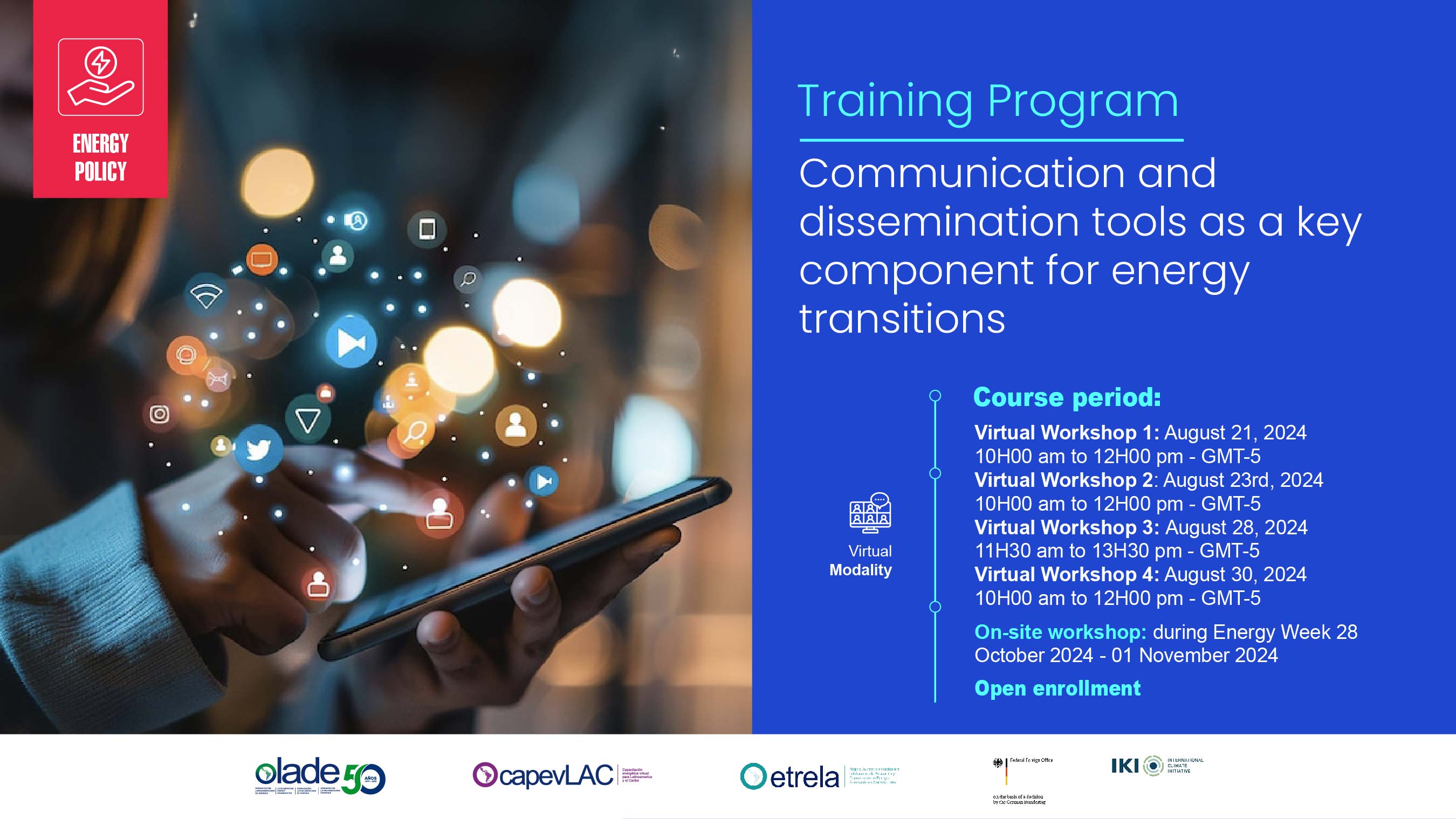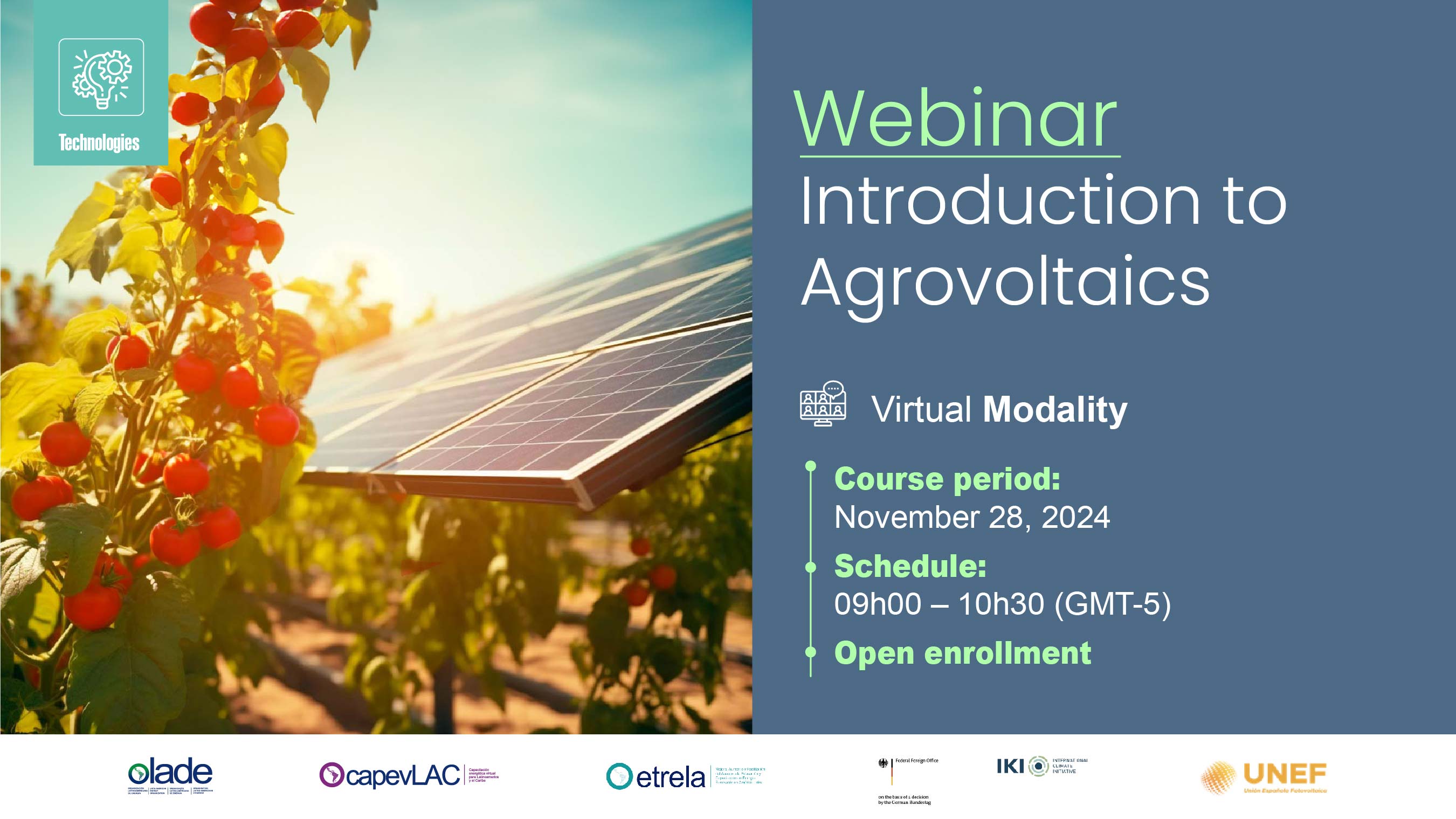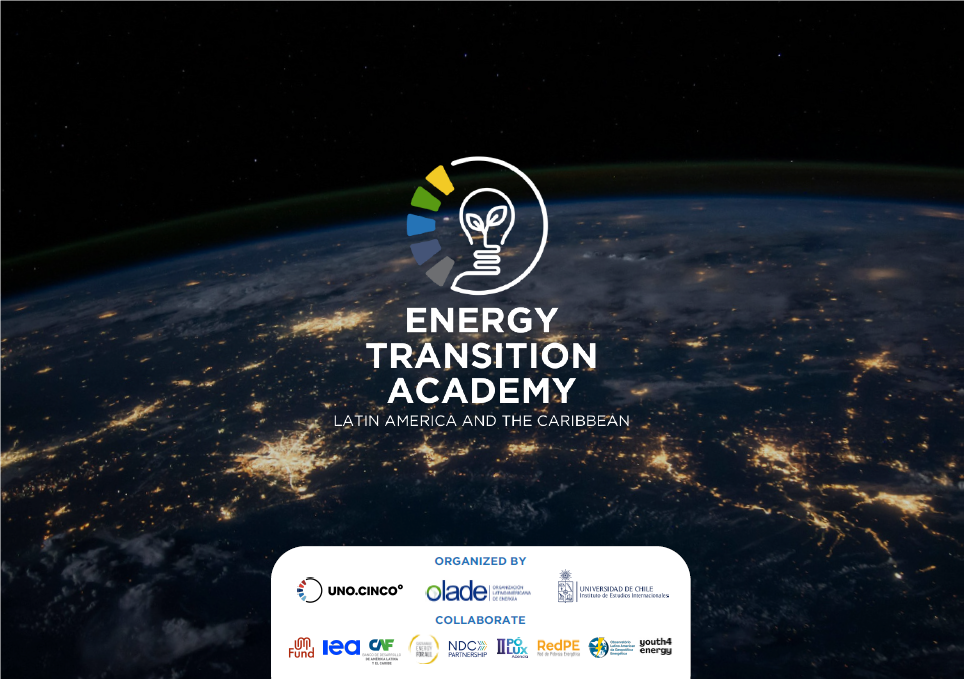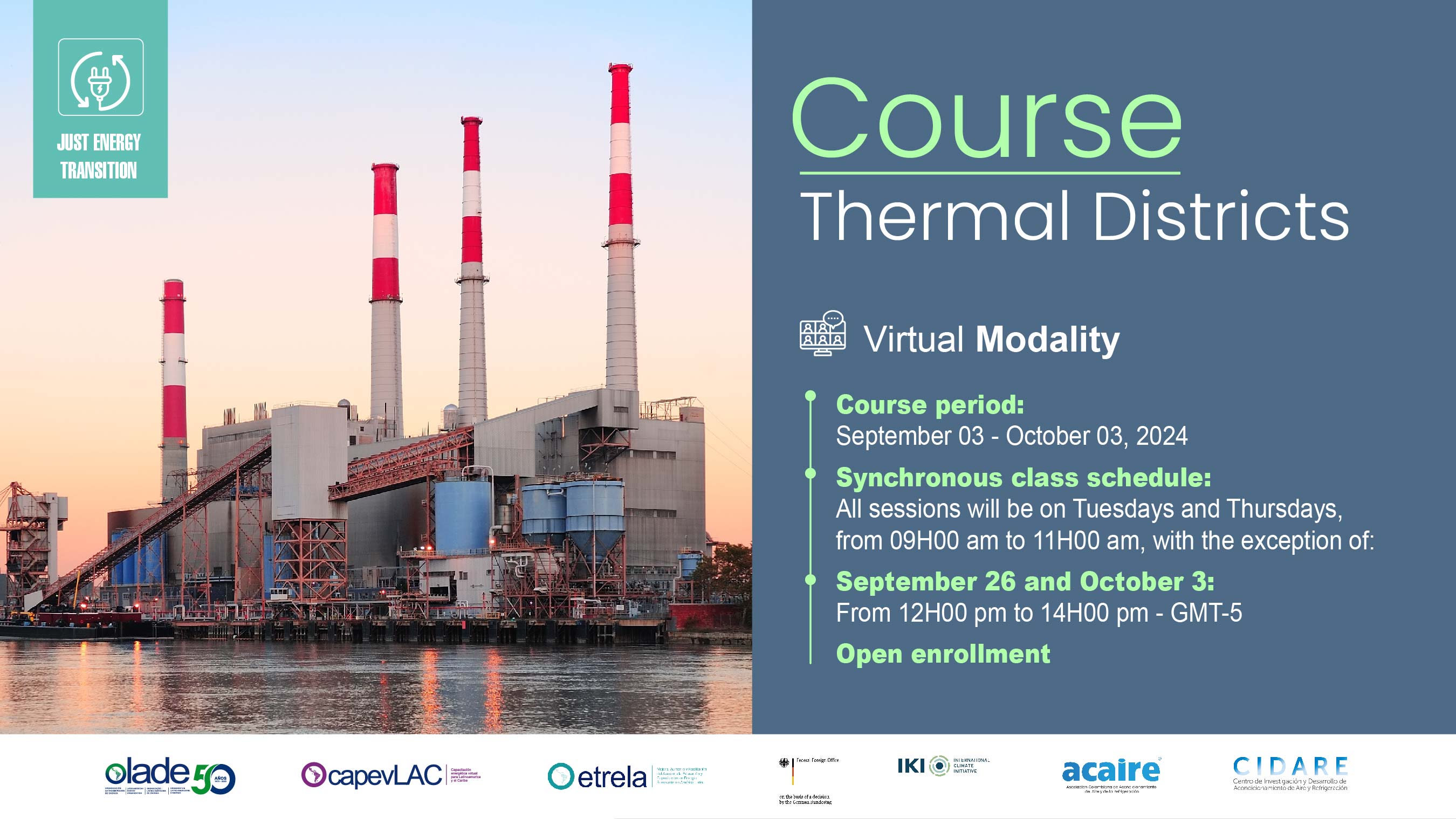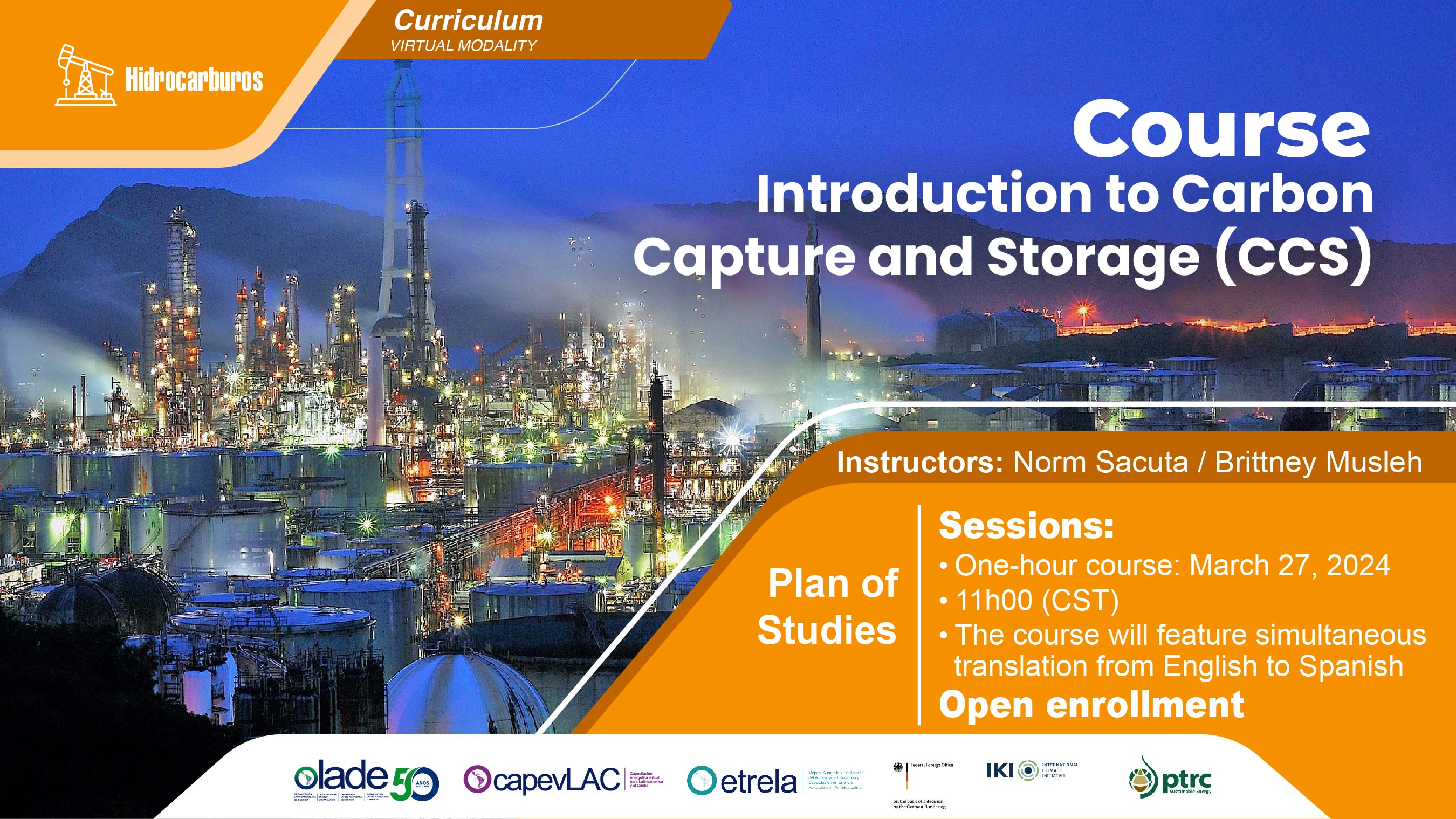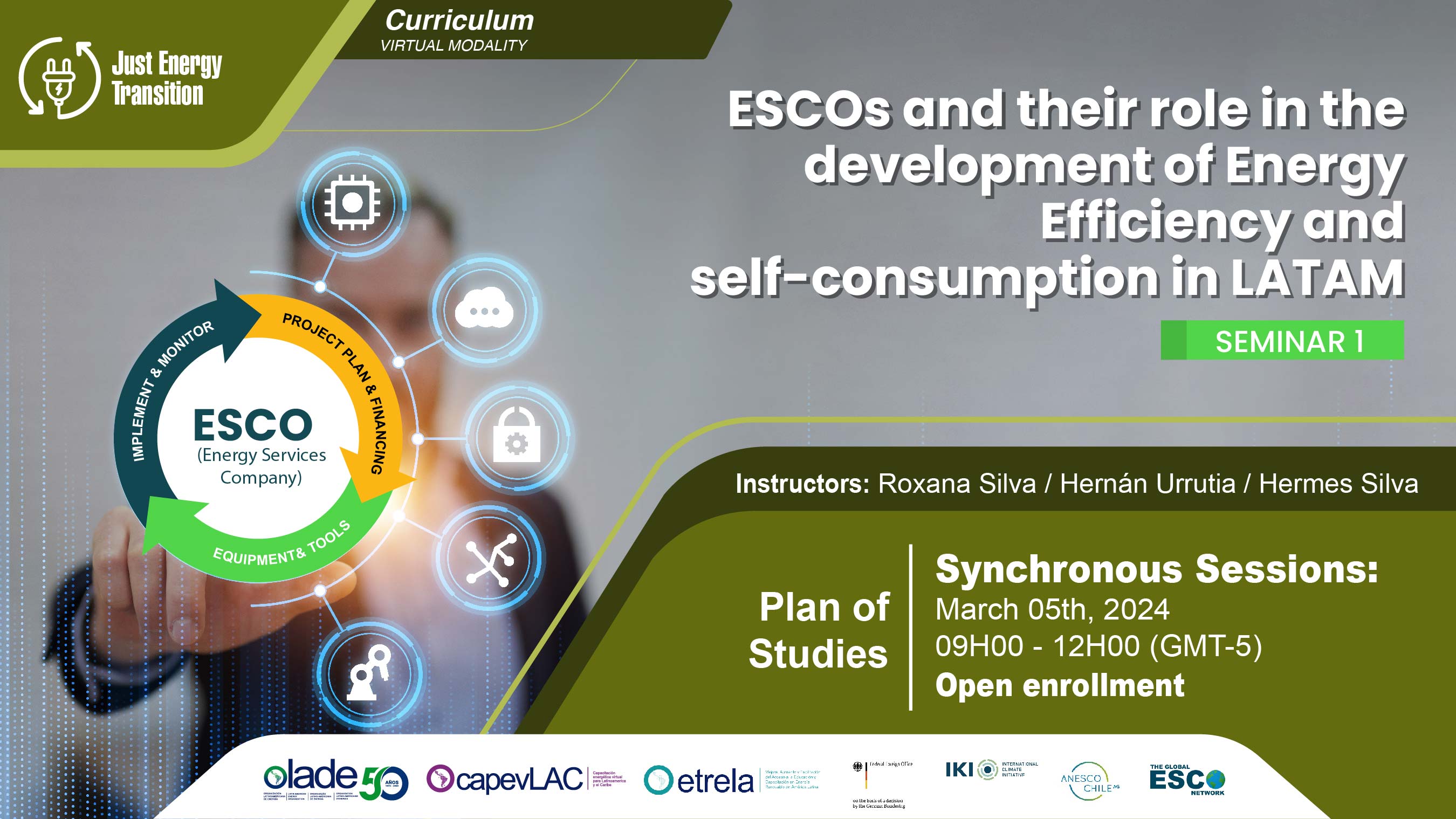Introduction
The energy training program for communicators is a dynamic experience designed to equip communicators with the knowledge and tools necessary to understand and effectively convey the challenges and opportunities in the energy arena. In a world where energy plays a central role in all aspects of life, from the economy to the environment, it is crucial that communicators are knowledgeable and are able to communicate clearly and accurately on this crucial topic.
- Presentation of the study plan
The training program will be conducted over a period of four (4) virtual sessions from 10:00 to 12:00 am – GMT-5.
The classes will be in virtual format, with participation of part of the technical team and interactive with the participants attending to their queries.
- General objective of the curriculum
The objective of this training program is to provide communicators with the tools and knowledge necessary to understand and effectively communicate energy-related issues, including technical, political, social and environmental aspects.
The training program seeks to provide the audience with the skills to:
Understand energy complexity: We will explore the different energy sources, from fossil fuels to renewables, and analyze the challenges and opportunities facing each.
Sustainability awareness: We will delve into the importance of sustainability in energy production and consumption, and discuss how we can move towards a more sustainable and resilient energy future.
Demystifying technology: We will address common myths about emerging energy technologies such as solar, wind, nuclear, and others to help communicators convey accurate and factual information about these technologies.
Effective communication: We will learn effective communication strategies to convey energy information in a clear, accessible and persuasive way, adapting the message to different audiences and contexts.
Exploring the energy future: We will reflect on future trends in the energy sector, from grid decentralization to the integration of new technologies, and discuss how these changes will impact society and energy communication.
- Curriculum Learning Outcomes
Participants in the training program will leave equipped with updated knowledge, enhanced communication skills, and a greater awareness of the challenges and opportunities in the energy field, enabling them to play a more effective and meaningful role as communicators in the energy field.
After completing the energy training program for communicators, participants can expect to achieve the following outcomes:
Improved understanding and ability to communicate about energy: Participants will have gained a deeper understanding of the different aspects of the energy sector, including the various energy sources, associated environmental and social challenges, as well as emerging technologies and future trends. This will enable them to communicate more effectively and accurately on energy issues in both traditional and digital media.
Enhanced persuasive communication skills: They will be able to tailor their energy message to reach different audiences, using effective storytelling and argumentation techniques to influence the perception and actions of their audience.
Increased awareness of the importance of energy sustainability: The training program will have raised awareness of the importance of sustainability in energy production and consumption. Participants will be more informed about the environmental and social implications of various energy options, and will be able to advocate for policies and practices that promote a more sustainable and equitable energy future.
Participant’s profile
The training program is aimed at communicators from different fields, including journalists, corporate communicators, public relations experts, and digital media professionals, who wish to improve their ability to report and educate on energy issues.
- Registration
Participants must register as users at: https://capevlac.olade.org/registro/ and then register to the study plan through the following link: https://capevlac.olade.org/politica-energetica/courses/taller-herramientas-de-comunicacion-para-las-transiciones-energeticas/
| This curriculum is open access and has no cost for OLADE Member Countries as it is implemented within the framework of the ETRELA project “Improving, increasing and facilitating access to education and training in renewable energy in Latin America” funded by the International Climate Initiative (IKI) of the Government of Germany and in cooperation with Martin Melo Garay. |
- Training Methodology
In OLADE’s knowledge community: https://capevlac.olade.org/ all the material of the curriculum of the virtual phase will be stored: lessons, links for each synchronous session and consultation and evaluation tools. The participant must enter this platform with the username and password registered at the time of registration.
The virtual sessions will be delivered in synchronous online mode, which implies real-time interaction between instructors and participants using OLADE’s videoconferencing platform.
The on-site training program will be held in Asunción, Paraguay, within the framework of the IX Energy Week as described in the previous section.
- Intellectual Property
All material produced and distributed in this course must be used exclusively by the person registered in the course. The use of the material for purposes other than the training action itself must be consulted and approved by OLADE.
- Instructors
Martín Melo Garay is a leading professional in digital strategies and multimedia communication with 15 years of experience. He currently works as Multimedia, Digital and Social Media Coordinator at Lundin Gold, a Canadian company that operates the Fruta del Norte mine in Ecuador.
Throughout these years, Martin has specialized in developing digital communication strategies for organizations and companies, both public and private, in the mining and energy industries.
Martín is a Social Communicator with a major in Audiovisual Communication from the SEK International University of Quito and completed his education by graduating with honors as a Master in Marketing with a major in Digital Strategy at the University of the Hemispheres and the IMF in Spain.
- Content of the Study Plan
| Workshop | Session | Topic | Instructor | Date | Start time
(GMT-5) |
End time |
| 1 | 1.1 | INTRODUCTION TO THE ENERGY SECTOR | • Andrés Rebolledo Smitmans – OLADE’s Executive Secretary
• Medardo Cadena – Advisor to the Executive Secretary OLADE • Gastón Siroit – Advisor to the Executive Secretary OLADE • Tatiana Castillo – Legal Advisor |
21-08-2024 | 10H00 | 12H00 |
| 2 | 2.1 | SCIENTIFIC COMMUNICATION IN ENERGY | • Fabio García –
• Martin Melo Garay |
23-08-2024 | 10H00 | 12H00 |
| 3 | 3.1 | ENERGY NARRATIVES | • Martin Melo Garay | 28-08-2024 | 11H30 | 13H30 |
| 4 | 4.1 | COMMUNICATION AS A TOOL FOR ENERGY TRANSITION | • Martin Melo Garay | 30-08-2024 | 10H00 | 12H00 |
| ON-SITE | THE REGIONAL NARRATIVE FOR ENERGY TRANSITIONS | ENERGY WEEK | 28 de Oct. al 01 de Nov. de 2024 | TBD | TBD | |
Course Features
- Lecture 0
- Quiz 0
- Duration 10 weeks
- Skill level All levels
- Language English
- Students 2
- Certificate No
- Assessments Yes

